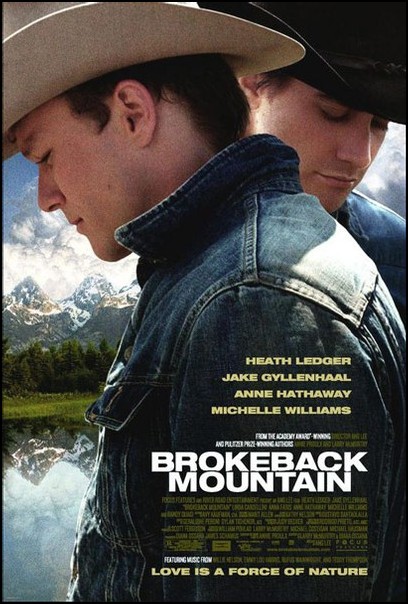Heath Ledger and Jake Gyllenhaal are considered some of Hollywood’s sexiest men. In “Brokeback Mountain” the two sex symbols remind audiences what their day jobs are. Based on a short story by E. Annie Proulx and directed by Ang Lee (“Hulk”), this story of love between two people with two different personalities is illustrated rather than spoken. The film has sparked controversy throughout the world and has been unfairly labeled as “the gay cowboy movie.” “Brokeback Mountain” is about more than homosexuality – it’s a story about love hidden by those who feel it and eventually by those that desperately try to ignore it.
Set in 1960s Wyoming, the film follows Ledger (“Casanova”) as Ennis Del Mar, a young rancher looking for summer work along with Jack Twist, played by Jake Gyllenhaal (“Jarhead”). The two young men herd sheep through the soft and rough terrain of Brokeback Mountain. Ennis is a quiet and completely still person while Jack is vibrant and ungrounded. The two compliment each other well, and soon fall reluctantly in love. The reluctance is most prominent in Ennis, who is haunted by the childhood memory of a hate killing directed at a gay man. This memory and the fear it instills in him is the reason Ennis remains so still even as everything and everyone around him moves and eventually moves away from him.
Visuals replace the film’s sparse dialogue. The little dialogue between Ennis and his wife, Alma, played surprisingly well by “Dawson’s Creek” alum Michelle Williams, explains a lot about Ennis and his inability commit. The acting focuses on showing rather than explaining through dialogue. Jack Twist’s painful declaration to Ennis after 20 years of unsatisfied love and Alma’s anger and confusion about her husband’s relationship with Jack are delivered with a face, a tear, a breath, not through explanatory lines. The spoken language in the film is useful, and the articulation is not perfect, which is appropriate to the characters.
“Brokeback Mountain” has drawn mass media attention, especially for Ledger. However, Gyllenhaal has not received as much attention as he should have for his performance as Jack, the one person in the film who was proactive with words and actions, the one person who committed to the truth about who he loved, who was not afraid to be vulnerable or to get hurt.
The accents all the principles delivered were somewhat of an annoyance. They were inconsistent: the accents placed the main characters as southerners, Midwesterners, and then back to northern ranchers. And at a whisper they forgot they were supposed to have accents. Ledger’s drawl sounded particularly forced.
Despite its little flaws and little perfections, this is a film well worth seeing – that is, if you’re able to see it. A Utah theater removed the film from its schedule and theaters in some other cities have refused to show it because of its controversial nature, according to the Associated Press.
The actors have been called brave for accepting these roles and portraying a homosexual relationship in a positive light. Silliness. Silliness to be called brave for playing two men in love with each other. Bravery is being in love and allowing yourself to lie next to the one you love knowing the societal consequences, something Ennis could never do in the film. The bravery is not in the filmmaking but in Jack Twist’s courage to be willing to move towards love and not let one horrible vision of the world’s hatred create a still and motionless person.






